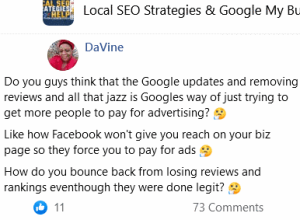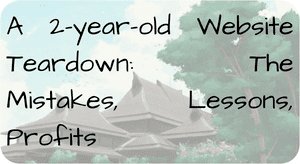u/starterman
I became a self made millionaire at 25 in a third world country. I will share my story here:
I am from Central America, a tropical region with lots of poverty and problems. Since I was a kid, I had the drive to put extra effort on achieving something. I started selling bananas to construction workers at 7 later selling candy to schoolmates at 10.
At 15 I decided to study business and become either an over achiever employee or a business owner, at that time I didn't exactly know which path to take. While I was in university (BA studies), I noticed I had a lot of spare time after school, so instead of wasting my time on leisure, I decided to start a business, I had no clue of which kind of business start (also to start one that didn't require much money because I had none.) I met with fellow classmates that were smart and also wanted to stand out, so together we decided to start a coffee distribution company.
We were offering coffee to restaurants and hotels but competition was very tough and we just couldn't close deals to get to break even. I started noticing the first signs of a red ocean industry and how tough it is to stand out in that kind of industry. My cofounders were not putting the same effort as I was, and that frustrated me. At a point my dorm served as the company's warehouse, packing center and distribution center, I was closing almost all of the sales with clients and also doing the delivery. I noticed many companies offered high quality coffee but only a few offered high quality tea. Also in my region (a coffee growing region) there are a lot of coffee sellers as we live in a coffee growing country. Tea was always imported from Asia and few companies actually focused on it. I noticed there was an opportunity on focusing on tea, instead of coffee.
I offered my cofounders to buy their shares and they agreed (for them it was a relief) so I started sourcing tea that was grown locally and mixing it with herbs, spiced and fruits to create tasty tea blends. The product was very good and without competitors, so I went to Mcdonald's High Quality (HQ) and offered the product for Mccafe. Mcdonald's loved the product and agreed on the price (they also liked that I was very young). My tea processing was being done at my dorm so I lacked all the licenses required to supply at Mcdonald's standards, so I was very sincere with the Supply Chain director and told him I had all the desire but lacked the money to build the proper tea facility. I offered him teapots and with the teapot earnings I could buy the machinery and equipment required to supply them properly and also to get the sanitary approvals. He agreed on the teapots and gave me a 50% advance ($50k) for them. I bought 5,000 teapots in Alibaba (China) for $3 each and sold them at $20 to Mccafe. I used all the profits to build the facility and it took me almost one year to finally start supplying Mcdonald's.
While I was already supplying them, I noticed the tea market was very small (a Blue Ocean kind, but actually a blue pond) My ambitious goals (become a billionaire at 35) would be tough to reach staying exclusively in the tea industry. I kept hustling for two years on the tea, until an opportunity came to me (or I came to it).
While I was offering tea to a sushi restaurant, out of curiosity, asked if the fish served there was locally caught. The owner said; "No, it comes from Asia because local fish has bad quality and I can't risk my restaurant's reputation or client's health giving them bad quality fish."
It startled me that local restaurants didn't use local fish even though we have plenty access to both Atlantic and Pacific Ocean. Seemed like an obvious problem, so I started to find out why, what asians did right and what us, central americans did wrong.
After months of obsessive research, the problem was lack of knowledge and investment in the local fishing industry resulting in fisherman living in poverty conditions with no ability to supply high quality fish. The solution was to teach them good practices and invest in a high quality seafood processing facility, the cost of the solution was over $400,000 in investment money that I didn't had.
So I decided to build a team, test out our theory and provide the product to restaurants and learn form their feedback. It was a lean start up mentality to start small and cheap to prove the business thesis. We received excellent feedback and real purchase interest from restaurants. That was enough to know it was a great opportunity and also a huge market potential for growth. So I decided to pitch my way up until I could secure the funds. After a year of pitching, I was far from the goal (securing $400k in a third world country is nearly impossible if you are a young entrepreneur with an idea.) So I started enrolling in international entrepreneurship competitions, I was able to compete in GSEA and then Hult Prize. I didn't win them, (earned a 2nd place in both) but it was enough to broaden my network with wealthy investors with deep pockets.
I secured funding early < year > and started building the fish facility in February, the c0v1d lockdown hit us hard and we couldn't deliver what our investor expected. So legal fights came, with lawyers I couldn't afford, while managing a born-dead company, while also pitching again to secure more funds to get us out of the hole. Our initial investor agreed to sell his shares if given 40% Return of Investment (RoI), paid $150k up front and semestral payments for 5 years
A new investment fund gave us a loan to pay back the previous investor and additional $300k for working capital. Very high interest rate, but at least we got a runway to prove our business through time.
After restructuring and getting rid of internal and external bad apples, we started buying, processing and selling fish in May < year >, we closed < year > with $2m in revenue and we will close < year > with $10m revenue, beyond supplying fish to local restaurants we also provide fresh fish (airplane delivery) to restaurants in Miami, NY, LA, frozen fish to hotel chains all over America. We have healthy debts now, a good EBITDA and a growth trajectory that will put us in $100m annual revenue in less than ten years, we will keep reinvesting profits on CAPEX and OPEX to keep up with the growth trajectory.
God has been an integral part of my journey.
Lessons learned:
• Vision and Goals must be clear.
• The path can change, the goals can't.
• Having a mission is key.
• Hustle, Hustle, Hustle
• Have a great team that compliment your strengths ad weaknesses.
Edit: Some redditors don't believe this, so search for "Forbes Centroamerica Abril < year >" 30 promesas de los negocios, you will see my face on the cover.
New edit: I will start providing proof of my story on my profile so all of you skeptics can believe, this isn't for me! It's for you!!! Human confidence and trust has brought humanity to great lengths, imagine that closed mentality was the same that kept cavemen from believing that human made fire wasn't sorcery.
I hope you enjoyed my story!!!
390 💬🗨
📰👈
8 Million Leads per Year through Content Clusters (Case Study)
6 Secrets of a Successful Social Media Strategy: Goals, Target Audience, Competitors, Content
4 Pillars of Social Media Marketing
5 Tips for Copywriters Facing Their Clients
6 Tips for Instagram Hashtags and the Follower Engagement






